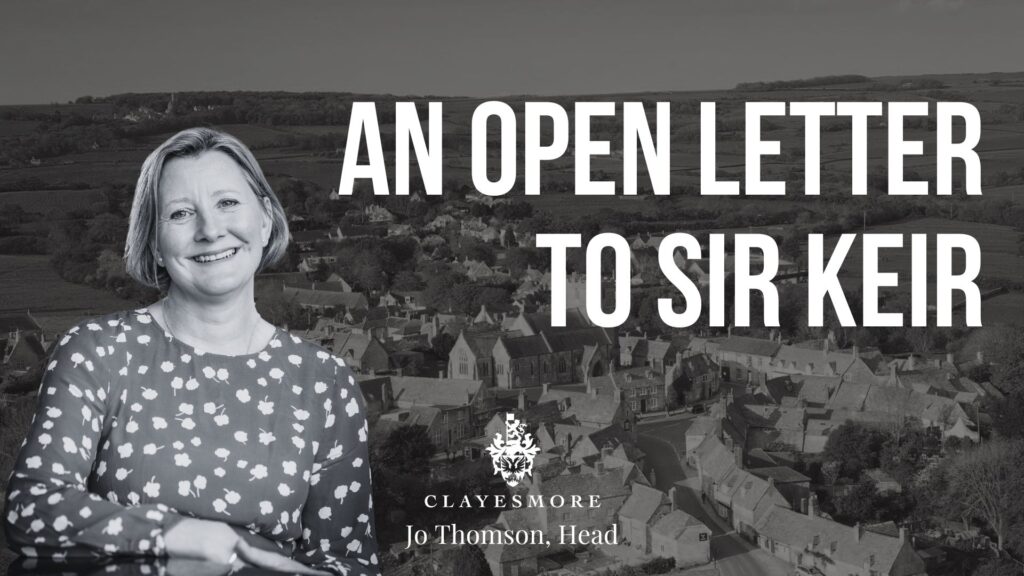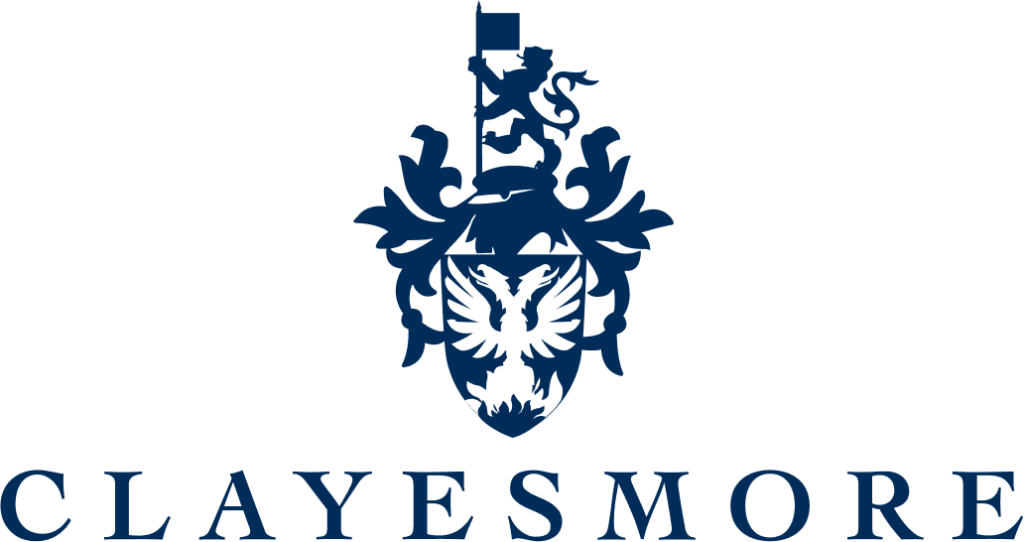In a powerful open letter, Jo Thomson, the head of Clayesmore School, has challenged Sir Keir Starmer’s new tax policy for independent schools, likening its potential impact on rural communities such as North Dorset to the devastating pit closures of the 1980s.

Labour aims to generate £1.7 billion by imposing VAT on private schools if it wins the election. The party has committed to using these funds to recruit 6,500 new state school teachers, implement a national “oracy” programme, and ensuring all state schools in England have access to mental health counselling.
On Monday, Sir Keir Starmer revealed additional plans to establish 3,300 new nurseries, also funded by the proposed VAT on private schools. While the party’s manifesto, published on Thursday, offered limited details on the VAT plans, it emphasised the intent to “invest in our state schools.”
A Labour Party spokesman told the Telegraph: “Labour will invest in delivering a brilliant state education for children in every state school by recruiting over 6,500 new teachers, funded by ending tax breaks for private schools.”
In her letter, Jo Thomson outlines the deeper issues behind the seemingly popular Labour policy. She explains that it’s far too simplistic to think of independent schools merely as places of education for the children of wealthy families.
‘Clayesmore educates 530 pupils in a small rural community,’ she says. ‘Some are military children, 162 receive support with their learning. Like most independent schools in the UK, we do not educate the Jacob Rees Moggs or the Boris Johnsons of this world. 95 pupils receive bursaries and a further 159 receive scholarships. We are also privileged to have 12 Ukrainian pupils in our midst; all fully funded by Clayesmore’s tight budget. None of these families could ordinarily afford private school fees.
‘The local primary school Head and the local secondary Head are both on my board of governors. We work closely together to the benefit of all our pupils and neither could absorb additional students in their schools should this tax be imposed on Clayesmore parents.’
She goes on to explain the social impact Clayesmore, like every other rural independent school, has on its immediate community, with residents enjoying facilities and entertainment at the school, and the school in turn supporting a complex network of local businesses, illustrating that – like most private schools – Clayesmore is both a major employer and client to the local business community.
‘I grew up in a small town in the Midlands that has never recovered from the closure of the mines in the 1980s. I have witnessed first hand the demise of communities when their beating heart has been removed … There is a large network of key people who enable us to function and who in turn depend on us for their livelihoods. Domestic staff, gardeners, caterers, plumbers, maintenance and administrative staff, amongst many others. Wherever possible, we buy our meat, dairy and veg from local farmers and work with many local businesses and suppliers to provide maintenance support, equipment and services to the school: these are all local people we know personally, and who value our contracts as much as we value them.’
Jo Thomson ‘wholeheartedly agrees’ with Labour’s determination to level up opportunities for every child and says she ‘would be delighted to work alongside you to discuss more ways in which schools like ours could support you in that goal.’
She finishes with an urgent call for Keir Starmer to understand that this policy – while potentially vote-winning on the surface – will have a far-reaching ripple effect that will disproportionately affect small rural communities like North Dorset’s:
‘I ask you not to underestimate the wider impact on small, often rural towns, full of hardworking people that depend upon the employment and other opportunities created by independent schools. Many independent schools, like those mines once were, are the lifeblood of small communities. Policies which undermine their existence will have a devastating impact on the lives of many; and not just the children who attend them.’
See the full letter below:
Dear Mr Starmer,
I am the Head of Clayesmore School in Dorset and I know we share a belief in the power of education to change lives. Someone once said that it takes a village to raise a child and it is that village that I want to talk to you about today. I want to draw your attention to the damage to communities that the addition of VAT on school fees will inflict; an important issue that I feel has not yet been fully understood or acknowledged.
Clayesmore educates 530 pupils in a small rural community in the village of Iwerne Minster. Some are military children and 162 receive some support with their learning. Like most independent schools in the UK, we do not educate the Jacob Rees Moggs or the Boris Johnsons of this world. 95 pupils receive bursaries and a further 159 receive scholarships. We are privileged to have 12 Ukrainian pupils in our midst; all fully funded within our very tight operating budget. None of these families could ordinarily afford private school fees. All our pupils are down to earth, respectful, humble young people who are being educated to recognise the value of their education and to understand that they have a duty in the future to give back. Having not been educated privately myself, believe me when I say that it has always been my mission to ensure that the pupils in our school are not arrogant, selfish or entitled.
The school is central to the village community which has a high proportion of retirees; many of whom love attending our music concerts, art exhibitions and seasonal celebrations and our pupils enjoy their daily interactions. The locals enjoy visiting our cafe and in return our staff and pupils make good use of the village shop. It’s a complex, mutually supportive and happy ecosystem of which, I think, you would approve.
I grew up in a small town in the Midlands that has never recovered from the closure of the mines in the 1980s. I have witnessed first hand the demise of communities when their beating heart has been removed. Too often we think of schools merely as places full of teachers and children, perhaps forgetting about the network of key people who enable us to function and who in turn depend on us for their livelihoods. Domestic staff, gardeners, caterers, plumbers, maintenance and administrative staff, amongst many others, pull together to ensure that the students have a safe and supportive environment in which to learn.
At Clayesmore, wherever possible, we buy our meat, dairy and veg from local farmers and work with many local businesses and suppliers who provide maintenance support, equipment and services to the school: these are all local people we know personally, and who value our contracts as much as we value them. In 2016, we invested in a biomass boiler to meet our goals of sustainability and energy efficiency and to demonstrate to our youngsters that we are doing our bit to protect the world they are going to inherit: the wood chips come from a farm down the road.
Being a school that cherishes service, community and hard work, I am proud of the way in which we play a part in enabling these small businesses to thrive. I cannot imagine where those hundreds of people are going to find jobs should some of the UK’s independent schools have to merge or close. The local maintained primary school Head and the local secondary Head are both on my board of governors. We work closely together to the benefit of all our pupils and neither could absorb additional students in their schools should this tax be imposed on Clayesmore parents.
In 2016, Brexit promised £350m per week to be diverted into the NHS. The reality has never matched the rhetoric. I fear that the VAT on private school fees policy, whilst similarly attractive to voters, is unlikely to bring in the hoped for £1.6bn for state schools but the consequences of the policy will be far-reaching and irreversible.
Sir Keir, I wholeheartedly agree with your aspiration to level up opportunities for every child and I know the difference a great education can make in transforming young lives. Indeed, that is what gets me out of bed each day. I would be delighted to work alongside you to discuss more ways in which schools like ours could support you in that goal. But in pursuing this admirable ambition, I ask you not to underestimate the wider impact on small, often rural towns, full of hardworking people that depend upon the employment and other opportunities created by independent schools. Many independent schools, like those mines once were, are the lifeblood of small communities. Policies which undermine their existence will have a devastating impact on the lives of many; and not just the children who attend them.
%20(2).png)
Jo Thomson
Head


